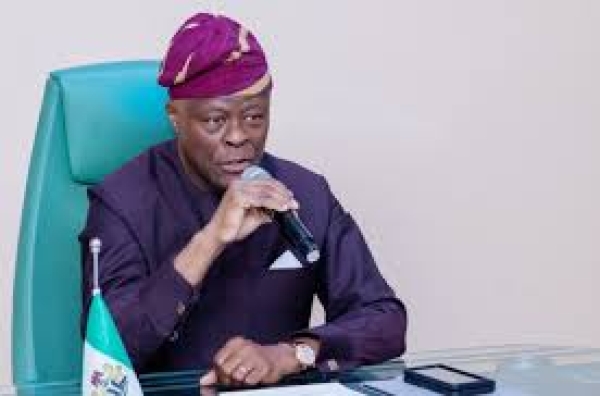Wale Edun, minister of finance, says the whistleblowing policy has helped the federal government to recover N83 billion, $609 million, and €5 million.
Edun spoke on Wednesday at a one-day sensitisation workshop on implementing the policy in Nigeria.
The policy was introduced by the administration of former President Muhammadu Buhari in 2016, but attempts to enact a legislative framework have failed repeatedly.
“The policy has already shown promise, with significant recoveries made since its inception in 2016,” Edun said.
“The whistleblowing policy has recovered funds totalling N83,019,178,375.86; $609,083,391.91; 5,494,743.71 Euros between 2017 and 2023.”
Edun, however, said more needs to be done to encourage Nigerians to own the fight against corruption and report financial misappropriation.
The minister said the bill is being prepared and will be presented to the national assembly soon.
He said the proposed bill seeks to provide a robust legal framework for protecting whistleblowers and ensure that reports are handled with confidentiality and prompt action.
Edun assured of the Tinubu-led administration’s commitment to ensuring that the policy is pursued with strict compliance with the rule of law to achieve transparency and accountability in governance.
‘POLICY PROVEN TO BE A TOOL IN UNCOVERING CORRUPT PRACTICES’
In his remarks, Okokon Ekanem Udo, the permanent secretary of special duties at the ministry, said the whistleblower policy, since its inception, has proven to be one of the veritable tools in uncovering corrupt practices within the public and private sectors.
Udo said it intends to empower citizens to report identified misappropriation of public funds and other fraudulent activities to the relevant authorities, thereby contributing towards the institutionalisation of transparency and accountability in governance.
The permanent secretary said the implementation of the policy has encountered some challenges just like other government policies.
“At the initial stage, there was widespread enthusiasm on the part of Nigerians about the introduction of the policy. The momentum and popularity that heralded its introduction need to be reinforced and sustained,” he said.
Udo said the sensitisation workshop was designed to deepen the understanding of the policy in Nigeria and also foster cooperation among the key stakeholders.
These stakeholders, he said, include the implementing team, the civil society organisations, as well as members of the media.
Also speaking, Lydia Shehu Jafiya, permanent secretary at the ministry, said it is important to focus on strengthening the protection of whistleblowers and safeguarding their identities.
This, she said, would encourage more individuals to come forward and contribute to the fight against corruption and misconduct.
Jafiya, who was represented by Olusola Dada, the ministry’s director of human resources, said there is a need to improve reporting mechanisms to make reporting channels more accessible, user-friendly and effective.
“It is essential that these mechanisms not only facilitate the reporting of concerns but also ensure that those concerns are addressed promptly and transparently,” Jafiya said.
She said the journey towards an effective whistleblowing regime is a collaborative effort.
According to the statement, with the reinvigoration of the whistleblower policy, the government aims to ensure transparency and accountability in the management of public finances and preserve the country’s assets.
The ministry said the draft bill is a significant step towards achieving this goal and demonstrates the government’s commitment to fighting corruption and promoting good governance.


